The ISTC Technical Assistance Program (TAP) assists clients throughout Illinois and beyond to improve the sustainability of their operations in a variety of ways. Below is an alphabetical list of services we offer, with brief descriptions. Click on the “Learn more” prompts for greater detail, where applicable. Links are also provided to select examples of projects featuring specific services.
Download the Technical Assistance Program flyer.
Comprehensive Assessment
 TAP provides a customized assessment of production processes to reduce energy & water consumption, minimize carbon footprint, reduce waste, increase productivity, and drive innovation. Learn more.
TAP provides a customized assessment of production processes to reduce energy & water consumption, minimize carbon footprint, reduce waste, increase productivity, and drive innovation. Learn more.
Compliance Assistance
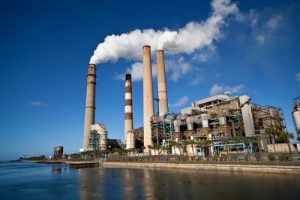 TAP advises clients on permitting and reporting requirements related to a variety of environmental regulations at all levels of government. We can also facilitate contact and communication with relevant regulatory agencies. Note that ISTC is a non-regulatory agency. When we visit your facility, it is solely to help you identify and implement opportunities to improve your environmental performance, efficiency, and cost savings. We don’t issue citations and are not there to gather information for regulatory agencies. That said, we can assist you in ways that will not only ensure environmental compliance but often take you beyond compliance to become an example of best practices for others to emulate.
TAP advises clients on permitting and reporting requirements related to a variety of environmental regulations at all levels of government. We can also facilitate contact and communication with relevant regulatory agencies. Note that ISTC is a non-regulatory agency. When we visit your facility, it is solely to help you identify and implement opportunities to improve your environmental performance, efficiency, and cost savings. We don’t issue citations and are not there to gather information for regulatory agencies. That said, we can assist you in ways that will not only ensure environmental compliance but often take you beyond compliance to become an example of best practices for others to emulate.
Fostering Sustainable Behavior

TAP helps clients create a culture of sustainability at their location or facility by assisting organizations, businesses, institutions, and communities to encourage sustainable behaviors among employees, students, campus/building occupants, and residents. See also “Stakeholder Engagement” below.
Browse descriptions of projects in which we helped clients foster sustainable behavior.
Implementation Assistance
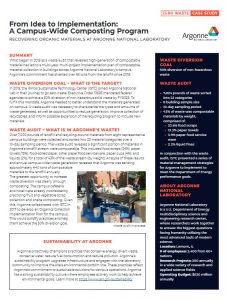 Besides providing initial site visits and resulting recommendation reports (see “What We Do” for more information), TAP frequently assists clients with the implementation of recommendations made to improve operational sustainability and achieve sustainability goals.
Besides providing initial site visits and resulting recommendation reports (see “What We Do” for more information), TAP frequently assists clients with the implementation of recommendations made to improve operational sustainability and achieve sustainability goals.
In special cases, TAP may also assist clients by evaluating materials, material substitutes used in a specific process, or by evaluating/demonstrating equipment or techniques for removal of hazards from processes or waste streams. Learn more.
ISO 14000 Assistance
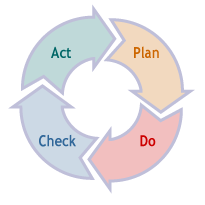 ISO 14000 is a family of standards related to environmental management that exists to help organizations minimize the negative environmental impacts of their operations, comply with applicable laws, regulations, and other environmentally oriented requirements, and continually improve in such endeavors. TAP can help your company identify improvements to your processes, support systems and building envelope to help you meet the continuous improvement requirement for maintaining your ISO Certification. Learn More.
ISO 14000 is a family of standards related to environmental management that exists to help organizations minimize the negative environmental impacts of their operations, comply with applicable laws, regulations, and other environmentally oriented requirements, and continually improve in such endeavors. TAP can help your company identify improvements to your processes, support systems and building envelope to help you meet the continuous improvement requirement for maintaining your ISO Certification. Learn More.
Pollution Prevention
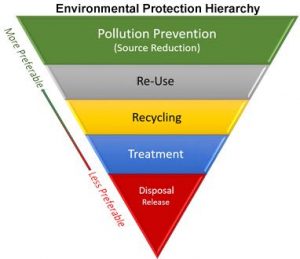 According to the U.S. EPA, pollution prevention (P2) is reducing or eliminating waste at the source by modifying production processes, promoting the use of non-toxic or less toxic substances, implementing conservation techniques, and reusing materials rather than putting them into the waste stream. P2 involves source reduction, in-process recycling, clean technologies, preventative maintenance, and materials substitution. National P2 policy was established by the Pollution Prevention Act of 1990.
According to the U.S. EPA, pollution prevention (P2) is reducing or eliminating waste at the source by modifying production processes, promoting the use of non-toxic or less toxic substances, implementing conservation techniques, and reusing materials rather than putting them into the waste stream. P2 involves source reduction, in-process recycling, clean technologies, preventative maintenance, and materials substitution. National P2 policy was established by the Pollution Prevention Act of 1990.
TAP currently has funding from the U.S. EPA to provide P2 assistance at no cost to certain industrial sectors. See “Sustainable Solutions for Business” and “Advancing Sustainable Manufacturing” for details.
Process Optimization
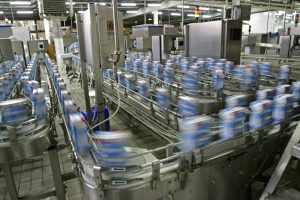
TAP can perform deep analysis and mapping of a process line through a sustainable lens, to minimize costs while maximizing throughput and efficiencies. We can assist with lean facility planning, efficient material handling, and creating high-quality products that are as close to zero defects as possible. We also help companies identify innovative green and sustainable production tools, methods, and alternatives that reduce the use of toxics and save money.
Resilient Solutions (Climate Resiliency)
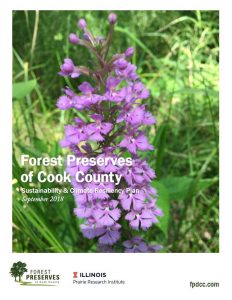 TAP can provide guidance to organizations and governmental units as they shift their policies, procedures, or products and services in an effort to mitigate climate change, and/or continue to operate within a world facing new climate realities. This may include assisting clients with determining how climate change could impact their operations, and identification of potential strategies to reduce or eliminate negative impacts of climate change, as well as the pros and cons of pursuing such strategies. It may also involve climate resiliency planning or integration of climate resiliency into sustainability or solid waste management plans. Additionally, we may provide guidance on communication and engagement with stakeholders around relevant aspects of climate change.
TAP can provide guidance to organizations and governmental units as they shift their policies, procedures, or products and services in an effort to mitigate climate change, and/or continue to operate within a world facing new climate realities. This may include assisting clients with determining how climate change could impact their operations, and identification of potential strategies to reduce or eliminate negative impacts of climate change, as well as the pros and cons of pursuing such strategies. It may also involve climate resiliency planning or integration of climate resiliency into sustainability or solid waste management plans. Additionally, we may provide guidance on communication and engagement with stakeholders around relevant aspects of climate change.
Stakeholder Engagement (including reporting)
 Effective communication of your sustainability vision, goals, and progress to both internal and external stakeholders is essential to motivating your team, prioritizing activities, and ensuring continuous improvement in your operations. ISTC can help you with all aspects of engaging your internal and external stakeholders as you define and pursue your sustainability goals. Learn more.
Effective communication of your sustainability vision, goals, and progress to both internal and external stakeholders is essential to motivating your team, prioritizing activities, and ensuring continuous improvement in your operations. ISTC can help you with all aspects of engaging your internal and external stakeholders as you define and pursue your sustainability goals. Learn more.
Browse projects involving stakeholder engagement.
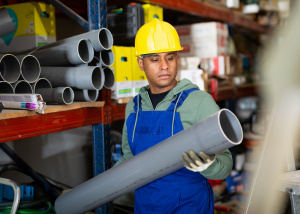 Supply Chain Sustainability
Supply Chain Sustainability
TAP can provide assessment and implementation support to a company’s suppliers to help them meet the company’s sustainability performance criteria.
Sustainability Planning
 Our team can provide customized visioning sessions, help you identify and articulate sustainability goals in-line with your organizational values, and formulate effective plans for sustainable change and tracking progress. We can also assist with establishing the regional and global context of your organizational goals and efforts to illustrate their significance to internal and external stakeholders. Learn more.
Our team can provide customized visioning sessions, help you identify and articulate sustainability goals in-line with your organizational values, and formulate effective plans for sustainable change and tracking progress. We can also assist with establishing the regional and global context of your organizational goals and efforts to illustrate their significance to internal and external stakeholders. Learn more.
Water Use Assessment and Benchmarking
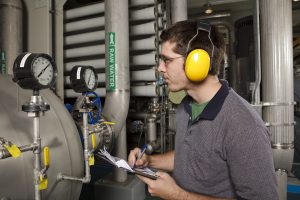 Analysis of a facility or operation’s water use provides important data in measuring performance. All industrial and commercial operations use water in the creation of products and delivery of services, but that “embedded” water is not immediately obvious at every step along the production process or to the end consumer. This “hidden” water, when uncovered, helps clients understand their true water footprint allowing for more realistic and effective decisions about water consumption and possible conservation efforts. Gallons per employee, or per product manufactured or service provided, are measures that support valid performance comparisons and true benchmarking within and across organizations. Learn more about TAP’s Water Efficiency and Conservation program.
Analysis of a facility or operation’s water use provides important data in measuring performance. All industrial and commercial operations use water in the creation of products and delivery of services, but that “embedded” water is not immediately obvious at every step along the production process or to the end consumer. This “hidden” water, when uncovered, helps clients understand their true water footprint allowing for more realistic and effective decisions about water consumption and possible conservation efforts. Gallons per employee, or per product manufactured or service provided, are measures that support valid performance comparisons and true benchmarking within and across organizations. Learn more about TAP’s Water Efficiency and Conservation program.
Water Testing and Auditing
TAP’s Institutional Water Treatment (IWT) program provides unbiased, professional water treatment advice to facilities equipped with institutional water systems including cooling towers, chillers, boilers, etc. The program helps clients assure public health and safety along with substantial annual savings in costs of chemicals, energy, water, and maintenance in industrial and potable water systems. IWT makes recommendations concerning comprehensive water treatment for control of corrosion, mineral scale formation, and biological growth. Facilities receive detailed written recommendations and specifications for system design and equipment, treatment equipment, chemicals, and corrosion-resistant materials for use in existing institutional water systems and new construction. IWT also has the capability to test water sources for Legionella pneumophila, the bacterium that causes Legionnaires’ disease. Learn more about the IWT program.

Waste Characterization and Management
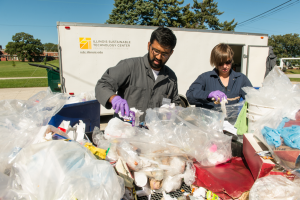 TAP can design and implement site-specific waste audits ranging in scope from individual buildings to large communities. By analyzing both material inputs and outputs within a facility or other locale, we can identify opportunities for waste prevention, reduction, and diversion. Waste characterizations, waste management planning, waste-related stakeholder engagement, and implementation assistance are performed as part of our Zero Waste program. Learn more about the Zero Waste program.
TAP can design and implement site-specific waste audits ranging in scope from individual buildings to large communities. By analyzing both material inputs and outputs within a facility or other locale, we can identify opportunities for waste prevention, reduction, and diversion. Waste characterizations, waste management planning, waste-related stakeholder engagement, and implementation assistance are performed as part of our Zero Waste program. Learn more about the Zero Waste program.
Browse descriptions of projects in which waste characterization studies were conducted.

